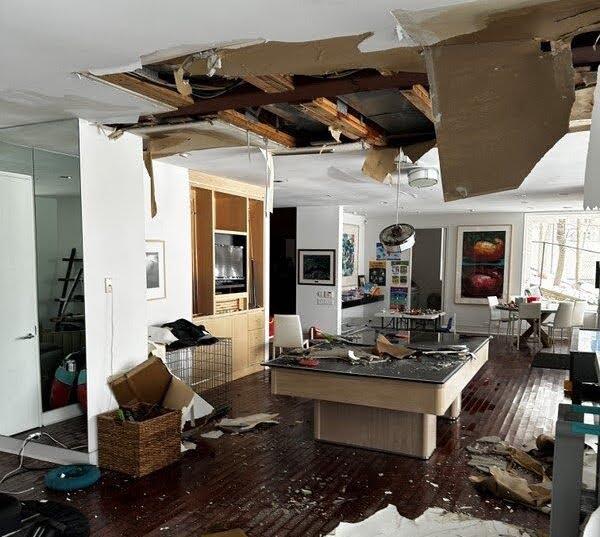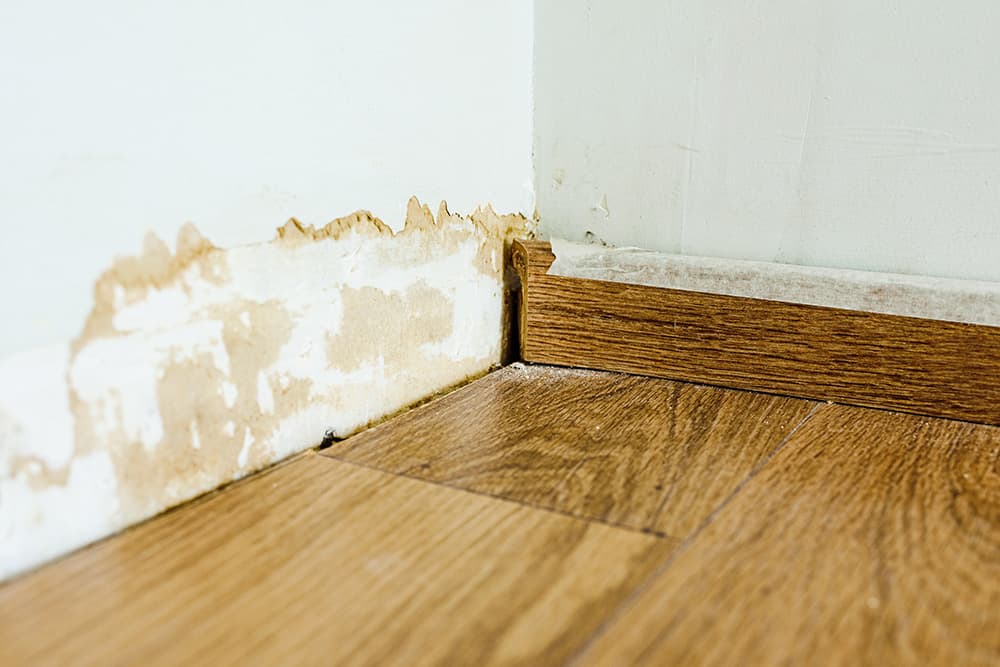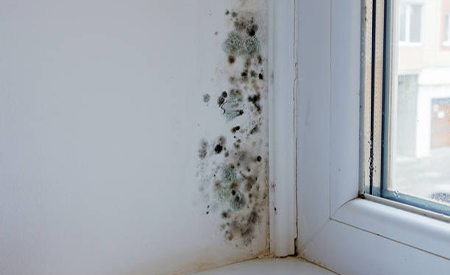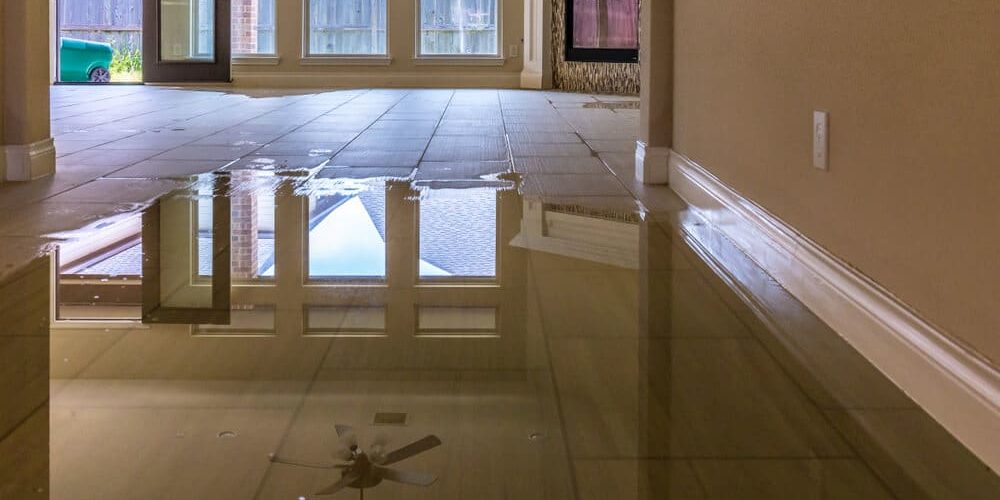Emergency Water Leak Repair to Prevent Further Property Destruction
The Refine of Water Damage Clean-up: Guaranteeing Your Home Is Brought Back Effectively
Water damages can be a challenging obstacle for property owners, demanding a precise and structured clean-up procedure to restore safety and security and functionality. At first, a comprehensive evaluation is essential to identify the degree of the damages and identify the proper removal steps. Following this, effective water extraction methods play a crucial role in reducing additional damage. The nuances of drying, sterilizing, and eventual remediation are similarly necessary and usually overlooked. Understanding these phases can make a substantial distinction in the end result of your home's reconstruction, prompting a closer consider what each action involves.
Evaluating the Damage
Upon uncovering water damages, the initial step is to extensively examine the degree of the impact. This first examination is important, as it helps determine the essential steps for effective cleaning and repair. Begin by examining the influenced locations, including wall surfaces, ceilings, floorings, and personal belongings, to determine the source of the water breach, whether from flooding, leaks, or condensation.
Recording the damage is essential for both insurance policy claims and intending repair efforts - damage restoration services. Use photographs and composed notes to capture the extent of the damage, keeping in mind any damaged structural aspects and materials. Pay special focus to areas that might not be right away noticeable, such as behind walls and under carpetings, as hidden dampness can lead to additional complications, consisting of mold development
Furthermore, analyze the timeline of the water exposure. Ultimately, a detailed analysis lays the foundation for an effective water damages cleanup process, guaranteeing that all impacted areas are attended to properly and extensively.
Water Removal Strategies

Experts generally employ submersible pumps for larger volumes of water, which can rapidly reduce flooding in cellars or other impacted areas. For smaller amounts, wet/dry vacuum cleaners are frequently made use of to remove recurring wetness from carpets and tough surface areas. Furthermore, utilizing portable extractors enables targeted elimination in confined rooms or locations with delicate products.
In circumstances of contaminated water, such as sewer or floodwater, progressed extraction strategies may involve using biohazard devices to make sure safety and security and compliance with health laws. High-powered extraction devices are vital in reducing water retention in structural products, which can lead to mold and mildew growth and architectural degeneration if not resolved quickly.
Inevitably, the efficiency of water removal methods plays a pivotal function in the overall success of the water damages cleaning process, laying the foundation for subsequent reconstruction efforts.
Drying and Dehumidification
As soon as standing water has been successfully extracted, the next essential phase in the water damages cleanup process is drying out and dehumidification. This action is necessary to prevent additional damages and mold and mildew growth, which can happen within 24 to 2 days in moist settings.
To achieve effective drying out, specific equipment such as industrial-grade air moving companies and dehumidifiers is employed. Air moving companies circulate air across damp surface areas, enhancing evaporation prices, while dehumidifiers lower humidity levels airborne, advertising a helpful environment for drying. The mix of these devices ensures that wetness is attracted out from furnishings, walls, and floors, enabling them to completely dry extensively.
It is very important to keep track of the drying process carefully. Experts usually use moisture meters to assess the moisture content in various materials, guaranteeing that all impacted locations get to appropriate dryness levels. This precise method helps to avoid covert wetness pockets that could result in structural damage or harmful mold and mildew development.

Cleaning and Sanitizing
After the drying out and dehumidification phase is complete, the following crucial step in water damages cleaning is cleaning up and sanitizing the influenced areas. This process is critical to stop the development of mold, bacteria, and various other pathogens that grow in moist environments.
The cleansing phase typically entails eliminating any particles, dirt, and impurities from surfaces making use of specialized cleaning up representatives. For difficult surface areas, a combination of soap and water or business cleaning items is frequently used. Soft materials, such as furniture and carpets, might require a lot more comprehensive cleansing methods, consisting of steam cleansing or deep removal techniques, to make certain extensive hygiene.

Sanitizing complies with cleansing, making use of EPA-approved disinfectants to get rid of unsafe microorganisms. This step is necessary, particularly in areas that may have entered into call with floodwaters or sewage, as these sources can pose major health and wellness threats.
Furthermore, it is essential to resolve any remaining odors, which may need the usage of smell neutralizers or innovative techniques like ozone treatment. Appropriate cleaning and sterilizing not just bring back the safety and security and health of your home yet additionally prepared for effective restoration and repair work in subsequent stages of the water damage cleanup process.
Remediation and Repair Work

When the evaluation is complete, reconstruction efforts can start. Additionally, floor covering might require comparable attention, depending on the level of water direct exposure.
It is vital to engage knowledgeable restoration experts throughout this process, as they have the knowledge to take care of complex repair services effectively. They can help reduce prospective future concerns, such as mold and mildew growth or structural instability, therefore making sure a habitable and safe living environment. Eventually, efficient reconstruction and repairs restore the home's integrity and improve its general worth.
Final Thought
In have a peek at this site verdict, the procedure of water damages cleaning is critical for restoring a home to its pre-damage condition. Each phase, from assessing the damage to implementing effective water extraction techniques, followed by extensive drying out, sterilizing, and essential repair work, plays a crucial duty in making sure security and conformity with structure standards. Effective execution of these steps not just minimizes prompt damages however likewise enhances the long-term honesty and worth of the residential or commercial property.
Water damage can be a daunting obstacle for property owners, necessitating a organized and careful cleanup procedure to restore safety and security and performance. Inevitably, a detailed assessment lays the foundation for a successful water damage cleanup process, ensuring that all impacted locations are dealt with effectively and completely.
Reliable water extraction methods are important in minimizing damages and avoiding more problems adhering to a water intrusion event.In verdict, the procedure of water damage clean-up is essential for restoring a home to its pre-damage problem. Each stage, from assessing check the damage to carrying out effective water extraction methods, adhered to by comprehensive drying, disinfecting, and essential repair work, plays a crucial role in guaranteeing security and conformity with structure criteria.